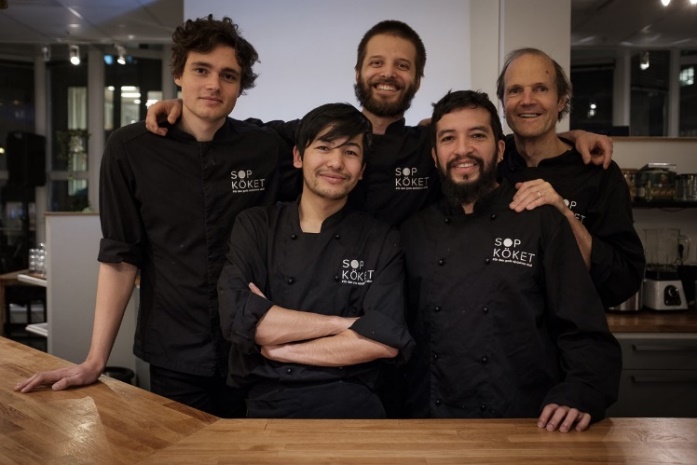We invite everyone to familiarize yourself with the case study created within the Circular Public Procurement.
Sopköket is a restaurant and catering business in Sweden that prepares meals based on partly rescued and surplus ingredients from supermarkets and wholesalers.
Circularity of business model:
Sopköket circularity is based on reducing material (food) flows by incorporating ingredients that were destined to be waste, but remain in suitable conditions for human consumption. Furthermore, they focus on eliminating their own waste, by redistributing leftover meals to people in need or amongst their employees and their relatives. Lastly, they operate their own compost to minimize waste generation and producing a fertilizer for their rooftop garden.
Other benefits:
Running this type of CBM provides several advantages. Firstly, their approach has a clear focus on sustainability (in particular eliminating food waste), which allows them to find partnerships with like-minded enterprises, such as organic or local food retailers, in order to get access to donated or class II produce. In addition to attract a growing niche of sustainability-sensitive consumers.
Another benefit is that they have lower raw materials costs since some of the ingredients used are donated or purchased at a discount price. However, this business model also requires a larger work-force compared to traditional restaurants and Sopköket focuses on providing opportunities for immigrants in Stockholm to enter the job market.
Lastly, they communicate the story of the rescued ingredients, for example the place where they were collected. This action not only raises awareness and promote a stronger connection between their customers and their food but also provides their customers reassurance that their food was not taken from a garbage bin.
Main Barriers:
Their main challenges are related to higher salary costs, since it takes longer time to deal with ingredients at their disposal for sorting and cleaning and creating new recipies every day. In addition, even though they have stablished partnerships with supermarkets with specific dates and times for pick-up, they have more complicated logistics than traditional restaurants. In particular, health regulations that require detailed registration of every item donated represent a barrier for establishing collaboration with some members of the retail sector because, this in turn, requires supermarkets to allocate more resources on additional work-force to deal with the established requirements.



